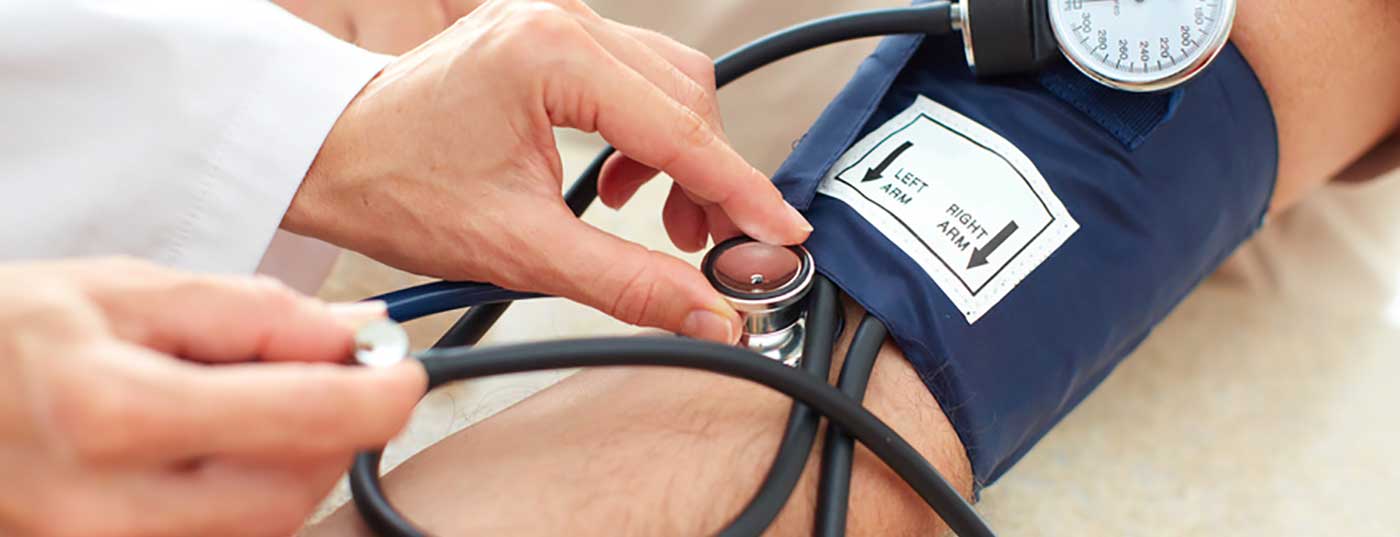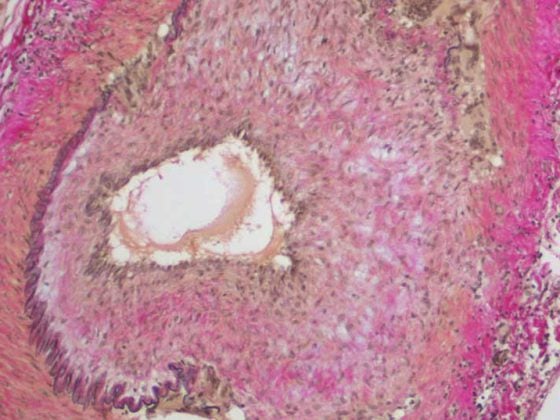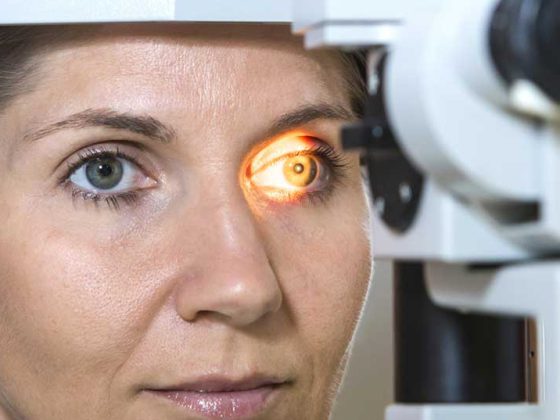Purpose: To compare the benefit of rapid blood pressure reduction in acute intracerebral hemorrhage (ICB) with standard therapy.
Background: Hypertensive derailments occur regularly in the setting of ICB and may be associated with an increase in bleeding and thus increased morbidity and mortality. The current guidelines of the international medical societies recommend a blood pressure reduction to <140 mmHg, based among others on the results of the INTERACT2 study.
PATIENTS AND METHODS: This was a randomized multicenter open-label study that included patients >18 years of age up to 4.5 hours after the onset of bleeding with a maximum ICB of 60 cm3 and a systolic blood pressure >180 mmHg. Patients were randomized to a standard (target systolic blood pressure of 140-179 mmHg) and an intensified treatment group (110-139 mmHg). Blood pressure was lowered primarily with intravenous Nicardip; intravenous antihypertensives could be administered before randomization to lower blood pressure below 180 mmHg systolic.
The primary end point was the degree of neurological disability using the modified Rankin Scale (0-3: no to moderate disability, ambulatory without assistance vs. 4-6: higher to most severe disability and death) at 3 months. Secondary endpoints were the increase in bleeding volume by more than 33% after 24 hours and quality of life measured by a questionnaire and a visual analog scale.
Results: The study ran between May 2011 and September 2015 at 110 centers in six different countries. After inclusion of 1000 patients (mean age 61.9 years), the study was terminated prematurely. About 56% of the patients were of Asian origin. Initial blood pressure was systolic 200.06 +/-27 mmHg. The primary endpoint was met in 38.7% of the intensive therapy group and in 37.7% of the standard therapy group. Secondary endpoints also did not differ significantly between the two treatment arms. After three months, a marginally significant higher adverse event rate was found in the intensive treatment group, and a posthoc analysis showed more frequent renal adverse events in the first week.
Authors’ Conclusion: In patients with acute ICB, rapid reduction of systolic blood pressure to target values between 110-139 mmHg compared with 140 -179 mmHg has no beneficial effect on functional outcome.
Comment: At first glance, the current results contradict the results of the INTERACT2 trial, which demonstrated better functional recovery after ICB for the intensive treatment group.
However, the differences in the extent of blood pressure reduction are worth noting. Whereas in INTERACT2 systolic blood pressure was reduced from a mean of 180 mmHg to 150 mmHg and 164 mmHg (intensive/standard) within 1 hour, systolic blood pressure after 2 hours in ATACH-2 was 128.9 mmHg and 141 mmHg, respectively, with a baseline of 200 mmHg.
From this point of view, the current study compared rather intensive and rapid blood pressure lowering with very intensive lowering.
In summary, the recommendation of moderate to intensive blood pressure reduction to <140 mmHg systolic remains unchanged after the ATACH-2 study. Accordingly, however, an even more aggressive reduction beyond this does not seem to bring any further benefits.
Literature:
- Qureshi, AI et al: Intensive Blood-Pressure Lowering in Patients with Acute Cerebral Hemorrhage. N Engl J Med June 2016. DOI: 10.1056/NEJMoa1603460. Epub before print.
- Anderson, CS et al: Rapid Blood-Pressure Lowering in Patients with Acute Intracerebral Hemorrhage. N Engl J Med 2013. 368: 2355-2365.
- Hemphill III, JC et al: AHA/ASA Guidelines of the Management of Spontaneous Intracerebral Hemorrhage. Stroke 2015; 46: 2032-2060.
- Steiner, T et al: European Stroke Organisation (ESO) guidelines for the management of spontaneous intracerebral hemorrhage. Int J Stroke 2014; 9: 840-855.
InFo NEUROLOGY & PSYCHIATRY 2016; 14(5): 36.











